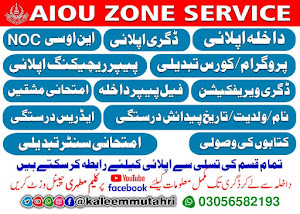What is GCSE, IGCSE and GCE 'O', and 'A' Levels
GCSE (General Certificate of Secondary Education), IGCSE (International General Certificate of Secondary Education), and GCE 'O' Levels (General Certificate of Education Ordinary Level) are all qualifications taken by students in the United Kingdom and other countries. They are usually studied between the ages of 14 and 16, typically over a two-year period.
GCSE, IGCSE and GCE ‘O’ Levels
GCSE and IGCSE are very similar qualifications, with IGCSE being the international version. They both cover a wide range of subjects, including English, mathematics, sciences, social sciences, languages, and humanities. Students typically choose a set of subjects to study, and they are assessed through a combination of coursework and written examinations at the end of the course.
GCE 'O' Levels are the predecessor to GCSE and IGCSE. They were originally introduced in the UK in the 1950s and were replaced by GCSEs in the late 1980s. However, they are still used in some countries and international schools today. 'O' Levels cover similar subjects to GCSEs and IGCSEs but have a different grading system.
These qualifications are important as they provide a foundation for further education or employment opportunities. After completing GCSEs, IGCSEs, or 'O' Levels, students may choose to continue their studies at a higher level, such as A-levels or the International Baccalaureate (IB), or pursue vocational courses or apprenticeships. The grades achieved in these examinations are often used by colleges, universities, and employers to assess a student's academic abilities and suitability for further education or employment.
GCSE Level in pakistan
In Pakistan, the equivalent of the General Certificate of Secondary Education (GCSE) is the Secondary School Certificate (SSC). The SSC is a standardized examination taken by students at the end of their secondary education, usually after completing grade 10. It is conducted by various educational boards across different provinces in Pakistan, such as the Board of Intermediate and Secondary Education (BISE) in Punjab, Sindh, Khyber Pakhtunkhwa, and Balochistan.
The SSC examination covers a range of subjects including Mathematics, English, Urdu, Science, Social Studies, and optional subjects depending on the student's choice. The examination is typically held in two parts: Part 1 (9th grade) and Part 2 (10th grade).
important note: education systems may vary across different regions and institutions within Pakistan, so the specific names and structures of examinations may differ. However, the SSC is generally considered equivalent to the GCSE level in terms of the level of education and qualification.
IGCSE Level in Pakistan
In Pakistan, IGCSE (International General Certificate of Secondary Education) is a widely recognized qualification offered by Cambridge Assessment International Education (CAIE). It is typically pursued by students in the age range of 14 to 16, usually in grades 9 and 10. IGCSE is an internationally recognized curriculum that provides a broad and balanced study program, covering a range of subjects.
IGCSE is often considered as an alternative to the local Pakistani secondary education system, which includes the Secondary School Certificate (SSC) and Higher Secondary School Certificate (HSSC) examinations. The IGCSE curriculum is designed to be academically rigorous and focuses on developing students' knowledge, understanding, and skills across various subjects.
Students can choose from a wide range of IGCSE subjects, including Mathematics, English Language, Sciences, Humanities, Business Studies, Computer Science, and more. The IGCSE curriculum encourages critical thinking, problem-solving, and application of knowledge in real-life situations.
Upon successful completion of the IGCSE examinations, students receive an internationally recognized certificate for each subject they have taken. This certificate can be used for further education or employment opportunities both within Pakistan and internationally.
Note: educational policies and systems can change over time, so it's recommended to check with local educational authorities or schools for the most up-to-date information regarding IGCSE qualifications in Pakistan.
GCE ‘O’ Level in Pakistan
GCE 'O' Level refers to the General Certificate of Education Ordinary Level qualification, which is an internationally recognized academic qualification for secondary school students. However, in Pakistan, the GCE 'O' Level qualification is not commonly offered or recognized by local educational institutions.
In Pakistan, the most common secondary school qualifications are the Pakistani Secondary School Certificate (SSC) and the Higher Secondary School Certificate (HSSC) awarded by the local examination boards. These qualifications are generally based on the national curriculum and are widely accepted for further education or employment within the country.
While the GCE 'O' Level qualification may not be widely recognized in Pakistan, it is recognized and accepted by many universities and educational institutions around the world. It is primarily offered by the Cambridge Assessment International Education (CAIE) board and is popular in several countries as an alternative to local secondary school qualifications. Students who pursue GCE 'O' Levels often continue their education by taking GCE 'A' Level or other equivalent qualifications.
GCE 'A' Level
GCE 'A' Levels is an internationally recognized qualification taken by students typically after completing their secondary education (O Levels or Matriculation) in Pakistan.
GCE ‘A’ Level in Pakistan
In Pakistan, GCE 'A' Levels refers to the General Certificate of Education Advanced Level qualification. GCE 'A' Levels is an internationally recognized qualification taken by students typically after completing their secondary education (O Levels or Matriculation) in Pakistan.
GCE 'A' Levels is offered by various examination boards, including the University of Cambridge International Examinations (CIE) and Pearson Edexcel. It is known for its rigorous academic curriculum and is widely accepted by universities around the world as a qualification for admission. Students usually choose a combination of subjects for their A Levels based on their interests and future educational or career goals. The subjects offered can vary depending on the school or examination board but commonly include sciences, arts, humanities, and business-related subjects.
A Levels are typically a two-year program, and students usually take their final exams at the end of the second year. The grades achieved in A Level exams are important for university admissions, both in Pakistan and abroad.
In Pakistan, GCE 'A' Levels are offered in various schools, colleges, and educational institutions, both private and public. Students who pursue A Levels often have the option to continue their education at universities in Pakistan or apply to universities abroad.












0 Comments